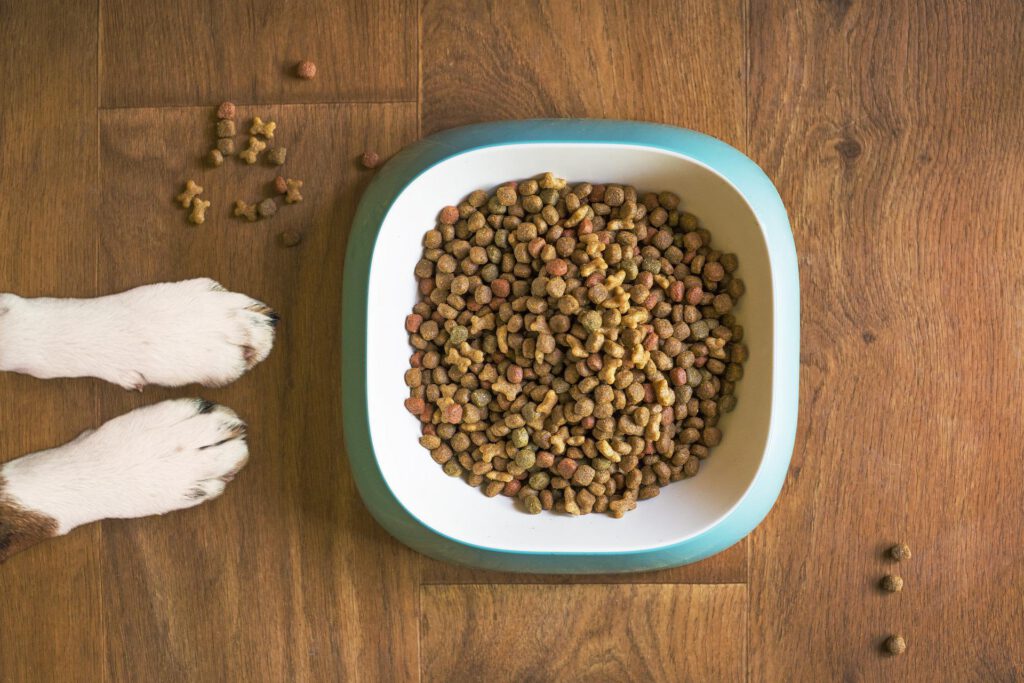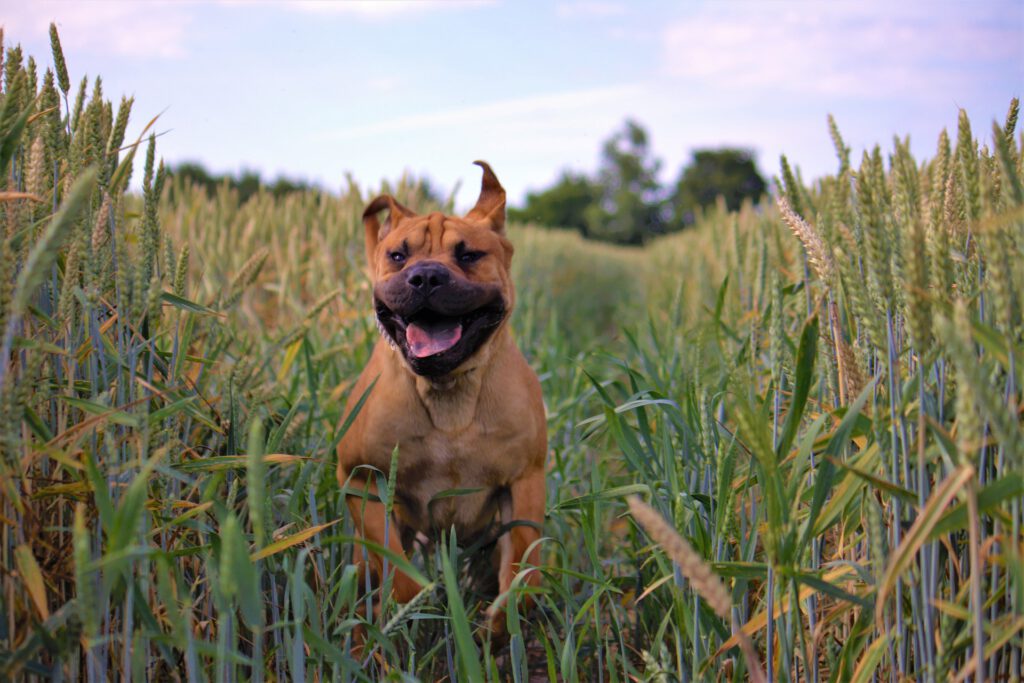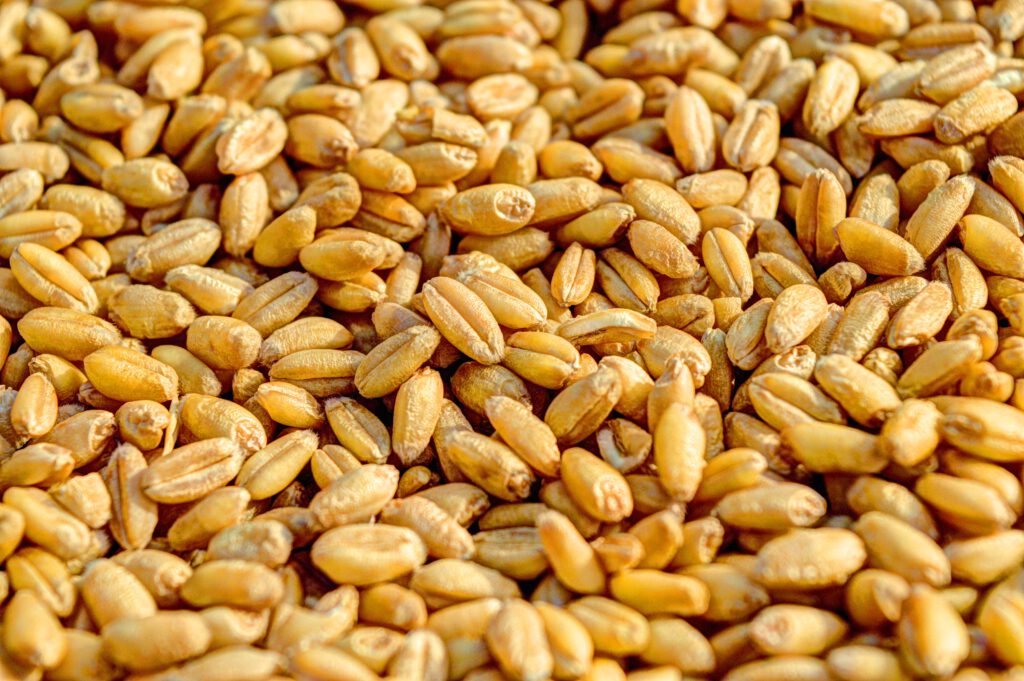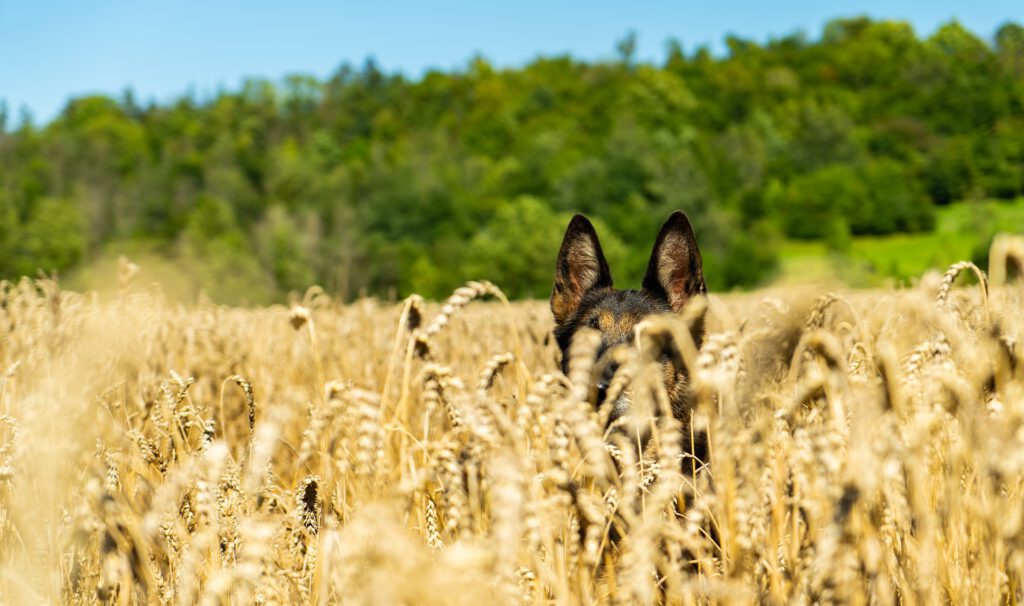
It’s one of the most controversial questions among dog owners: Are grains good or bad for dogs?
While shopping for kibble, you’ve seen some formulas advertised as “grain-free”. Are wheat, corn and rice really that harmful? Or are grain-free foods just a marketing fad?
In this article, we’ll discuss the pros and cons of grains so that you can determine whether your dog should eat them.
Types of Grains
Let’s take a look at the most common grains that you will find in dog food.
Wheat
Wheat is a grass that humans have been cultivating and consuming for over 10,000 years. When added to dog food, it provides high-quality carbohydrates while giving the food shape and texture.
Corn
Like wheat, corn has played an important part in the our diet for a long time. Many people believe that it functions only as a “filler” in dog food, but corn actually provides nutrients such as protein, carbohydrates, antioxidants, and fiber.
Rice
Rice is a cereal grain that is grown and eaten all over the world. In fact, rice represents one-fifth of the total calories consumed by all humans! In dog food, rice delivers limited amounts of protein and fiber.
Barley
Barley, another cereal grain, is a member of the grass family. It is commonly added to kibble. Barley delivers carbohydrates, fiber, potassium, and other nutrients to the dogs who eat it.

Are Grains Bad For Dogs?
Many dog owners believe that grains are unhealthy for their pup. But is this true? Let’s address the most common concerns.
Digestion
When dog owners imagine the perfect diet for their dog, they naturally think of meat. Like their wolf ancestors, dogs thrive on the taste of meat and the protein it provides.
Unlike wolves, however, dogs can easily digest grains! Research indicates that dogs possess many more copies of the AMY2B gene than wolves. This means that they are better at digesting starch.
Allergies
Unfortunately, some dogs may experience allergic reactions to certain grains. Wheat, for example, accounts for roughly 13% of all food allergies among dogs.
If your dog has itchy skin or shows other food allergy symptoms, talk to your veterinarian as soon as possible. Before switching to a grain-free diet, you should first rule out other ingredients such as beef and chicken which are more often associated with allergic reactions.
Obesity
You will not be surprised to hear that grains, like any other food, are best eaten in moderation. If your dog eats heaping bowls of rice every day, he will gain an unhealthy amount of weight. This is why most reputable dog food brands work hard to balance all ingredients in their kibble formulas, including grains.
The Unexpected Benefits of Grains
Now that we know why some dogs should avoid grains, let’s look at some of the benefits associated with grains in dog food.
Nutrients
As we have explained, grains are not just filler ingredients in dog food! Grains are a great source of soluble fiber, which helps control hunger and prevent constipation. They also provide potassium, antioxidants, carbohydrates for energy, and phosphorous which strengthens bones.
Delicious and Nutritious
Dogs have evolved to digest grains and they clearly enjoy eating them. There’s something about that starchy goodness that dogs find irresistible!
In fact, many dog food manufacturers have found it difficult to make grain-free foods taste good. They sometimes compensate by adding glucose (sugar) to their formulas. In the long run, a grain-free diet that is rich in simple sugars will increase the risk of pancreatic disease, type 2 diabetes, obesity, and other medical problems.
Cost
Most grain-free foods are considered to be premium products, and they are priced accordingly. You can expect to pay significantly more for kibble that contains no grain.

FAQ
Can grain-free dog food contain oats?
Oats are a type of cereal grain. You should not expect to see them in the ingredients list for a dog food that is advertised as “grain-free”. However, some people may confuse the terms “grain-free” and “gluten-free”. Oats are naturally gluten-free in their pure form.
Which ingredients should I avoid in dog food?
Some low-quality dog food brands use harmful ingredients in their kibble formulas. These ingredients usually act as preservatives or “fillers” for volume and texture. Avoid buying dog food with the following ingredients:
- Melamine
- Artificial colors and dyes
- Corn syrup
How do I know if my dog has a grain intolerance?
If your dog just can’t handle grain in his diet, you will probably notice changes in his behavior and health. Gastrointestinal symptoms include vomiting and diarrhea. Also look for itchy skin, excessive scratching and hair loss.

Conclusion
Ultimately, the decision to include grains in your dog’s diet is yours. As we have seen in this article, dog have evolved to digest them, and your pup certainly appreciates the taste. Grains also provide nutrients that are essential to a well-balanced canine diet. However, some dogs are allergic to grains and should avoid them. We strongly suggest that you talk to your veterinarian before making any changes to your dog’s diet.